
Domestic
10:03, 18-Mar-2019
China releases white paper on anti-terrorism, de-extremization and human rights protection in Xinjiang
Updated
16:06, 18-Mar-2019
CGTN
01:55
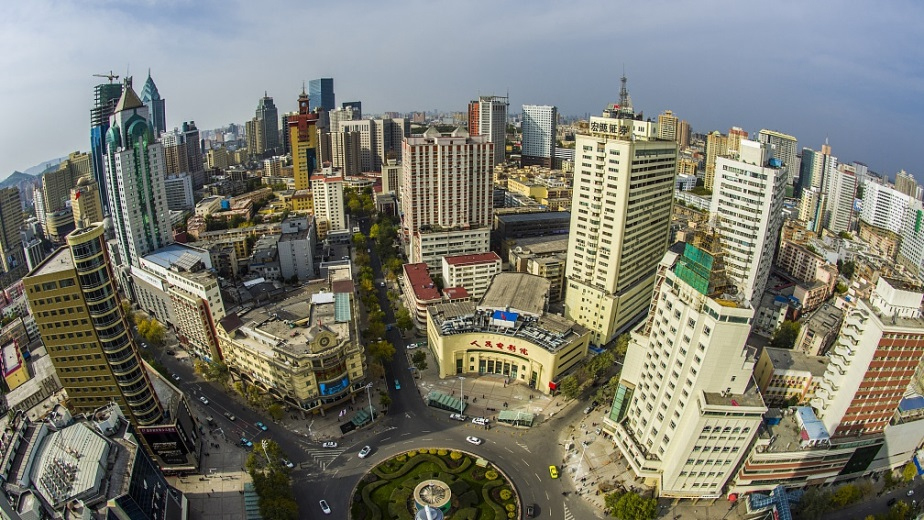
The State Council Information Office on Monday issued a white paper, titled "The Fight Against Terrorism and Extremism and Human Rights Protection in Xinjiang."
The white paper said Xinjiang Uygur Autonomous Region is an inseparable part of China, stressing a severe crackdown on terrorism and extremism in accordance with the law.
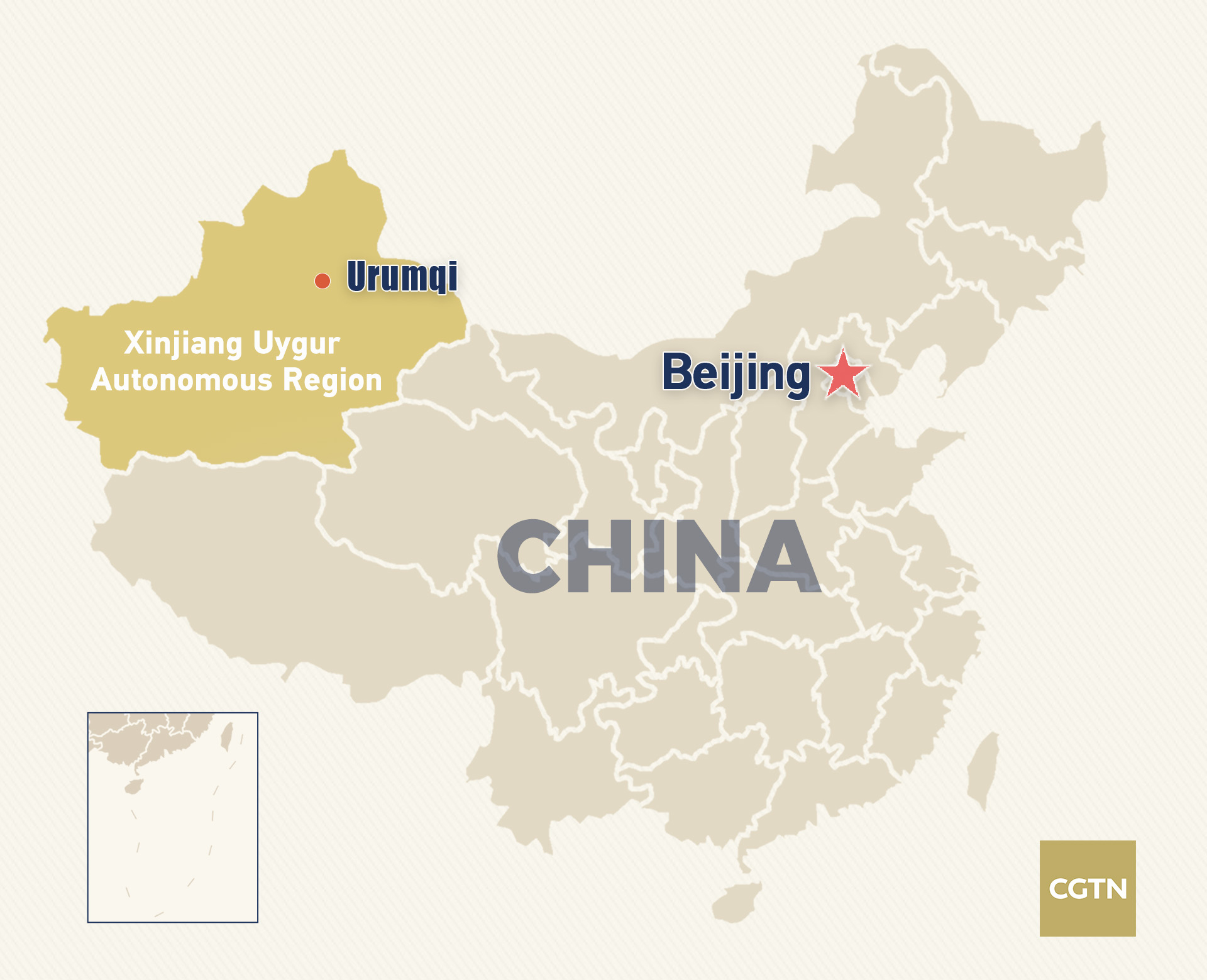
CGTN Graphic
CGTN Graphic
It also highlighted taking preventive steps to counter terrorism, calling for more international exchanges and cooperation on the issue.
Integral part of China
Xinjiang, a multi-ethnic region since ancient times, constitutes an integral part of the Chinese nation, the white paper said. "Xinjiang ethnic cultures are an inseparable part of Chinese civilization."
It said the Uygur ethnic group came into being in the long process of migration and ethnic integration.
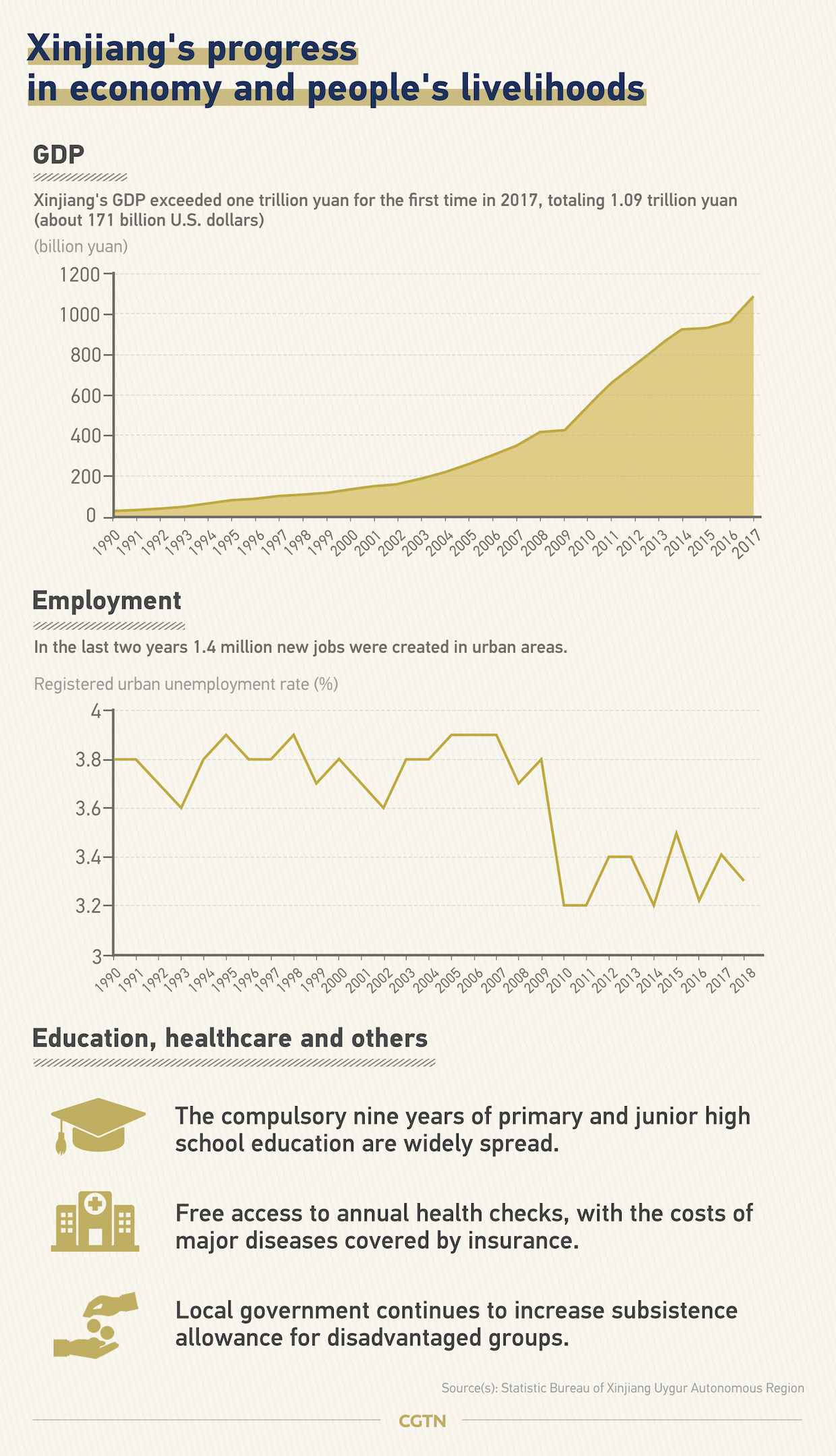
CGTN Graphic
CGTN Graphic
"They are not descendants of the Turks," it stated.
It also said Xinjiang has long been a multi-religious region.

Xinjiang is home to 13 ethnic minorities, and it is a place where the local vibrant cultural diversity can be exhibited through beautiful dancing. /VCG Photo
Xinjiang is home to 13 ethnic minorities, and it is a place where the local vibrant cultural diversity can be exhibited through beautiful dancing. /VCG Photo
Separatism, hotbed of terrorism and extremism
For a long time, terrorist and extremist forces have been beating the drum for separatist activities by distorting, fabricating and falsifying the history of Xinjiang, exaggerating the cultural differences between ethnic groups, instigating isolation and hatred, and advocating religious extremism, the paper said.
With the support of international anti-China forces, the "East Turkistan" forces have resorted to all means, fair or foul, to organize, plan and carry out acts of separatism and sabotage.
Since the 1990s, especially after the September 11 attacks in the United States, the "East Turkistan" forces inside and outside China have stepped up their collaboration as terrorism and extremism spread around the globe, trying desperately to establish "East Turkistan" through "Jihad" (holy war), it said.
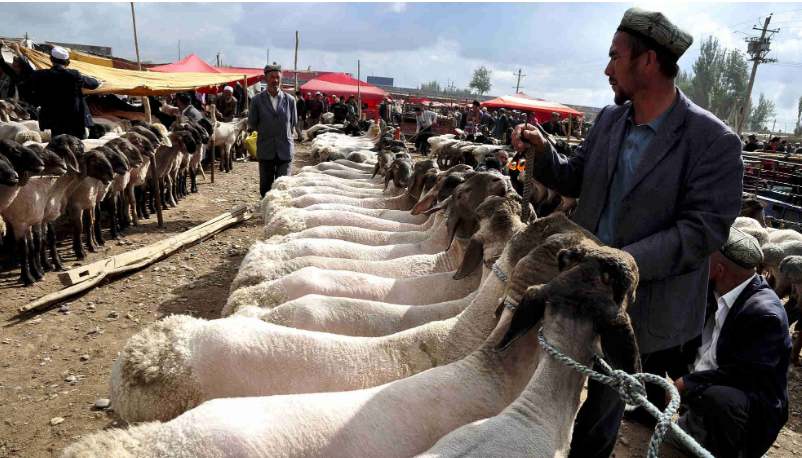
A livestock market in Xinjiang Uygur Autonomous Region. /VCG Photo
A livestock market in Xinjiang Uygur Autonomous Region. /VCG Photo
The white paper also noted that religious extremism under the banner of Islam runs counter to Islamic doctrines. "It is not Islam," the white paper said.
Incomplete statistics show that from 1990 to the end of 2016, separatist, terrorist and extremist forces launched thousands of terrorist attacks in Xinjiang, killing large numbers of innocent people and hundreds of police officers, and causing immeasurable damage to property.
"These inhuman, anti-social and barbaric acts have brought enormous suffering to all ethnic groups in Xinjiang," it said.
Law-based de-radicalization effort
China has been striking at terrorism and extremism in accordance with the law, said the white paper.
Counter-terrorism and de-radicalization in Xinjiang have always been conducted in accordance with the law, it added.
The local government upholds the principles of protecting lawful activities, curbing illegal actions, containing extremism, resisting infiltration, and preventing and punishing crimes. The local government fully respects and safeguards civil rights including freedom of religious belief.
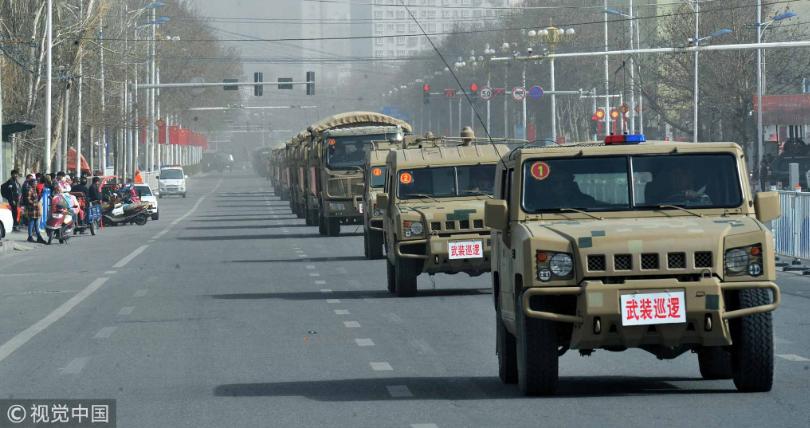
Xinjiang law enforcement forces vowed to fight terrorism in a mass gathering in Hotan, Xinjiang, on February 27, 2017. /VCG Photo
Xinjiang law enforcement forces vowed to fight terrorism in a mass gathering in Hotan, Xinjiang, on February 27, 2017. /VCG Photo
Based on experience learned from the international community, China has been active in implementing the resolution of the United Nations General Assembly concerning the United Nations Global Counterterrorism Strategy (60/288), the paper stressed.
Read more:
Since 2014, Xinjiang has destroyed 1,588 violent and terrorist gangs, arrested 12,995 terrorists, seized 2,052 explosive devices, punished 30,645 people for 4,858 illegal religious activities, and confiscated 345,229 copies of illegal religious materials, said the white paper.
China has been giving top priority to a preventive counter-terrorism approach, the paper added.

Diplomats from 12 countries visited a vocational center in Xinjiang in December 2018. /Xinhua Photo
Diplomats from 12 countries visited a vocational center in Xinjiang in December 2018. /Xinhua Photo
Specific measures include improving public well-being, promoting knowledge of the law through education, and offering education and aid through vocational education and training centers in accordance with the law.
Read more:
The white paper said Xinjiang has been actively providing help and aid through education.
International cooperation needed
China's fight against terrorism and extremism is an important part of the same battle being waged by the international community, the white paper said, adding that it is in keeping with the purposes and principles of the United Nations to combat terrorism and safeguard basic human rights.
In today's world, faced with the severe challenges of terrorism and extremism, no country can shy away from them, it said.
Read more:
"Only by strengthening our community of shared future, abandoning double standards, enhancing political mutual trust, reaching strategic consensus, and promoting exchanges and cooperation, can we effectively curb and combat terrorism and extremism in the interests of world peace and stability," the white paper said.
Read more:
1km
Source(s): Xinhua News Agency

SITEMAP
Copyright © 2018 CGTN. Beijing ICP prepared NO.16065310-3
Copyright © 2018 CGTN. Beijing ICP prepared NO.16065310-3